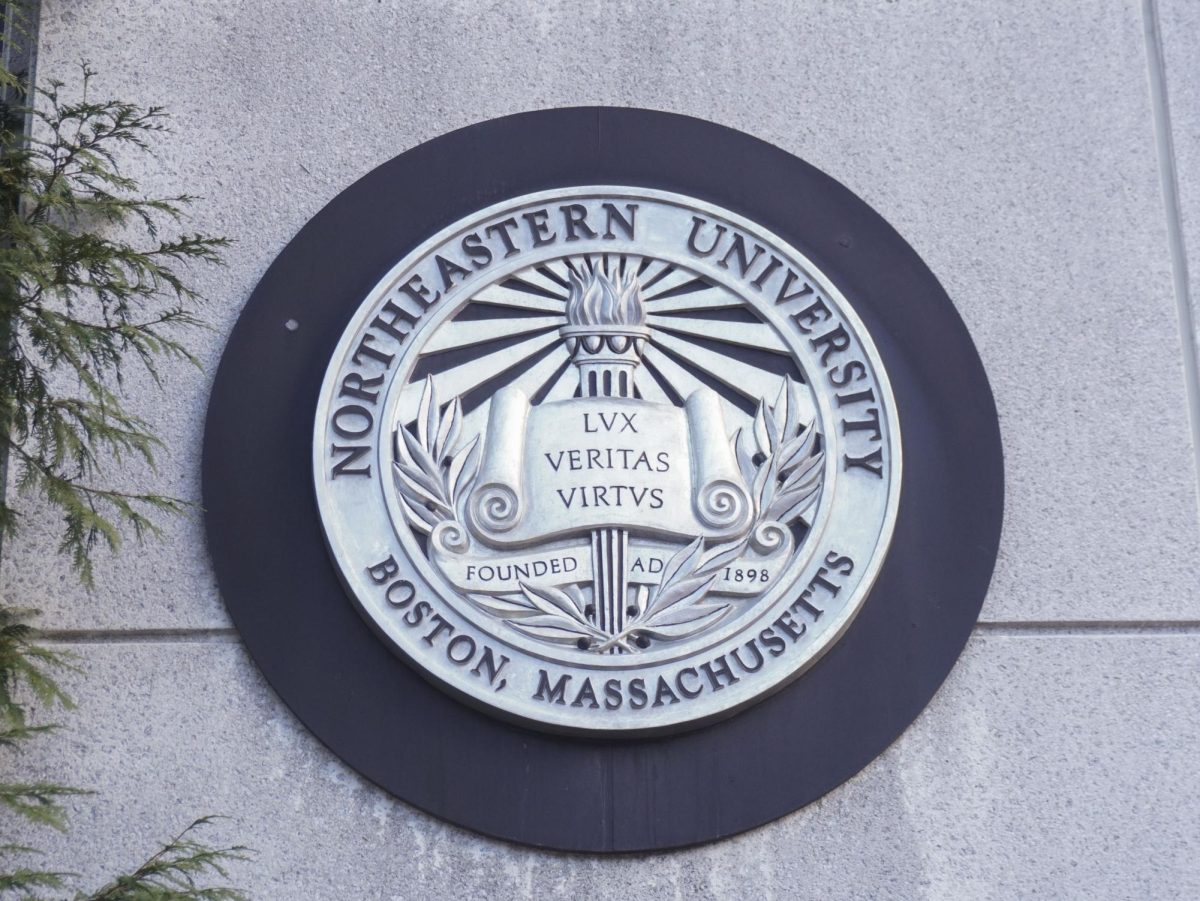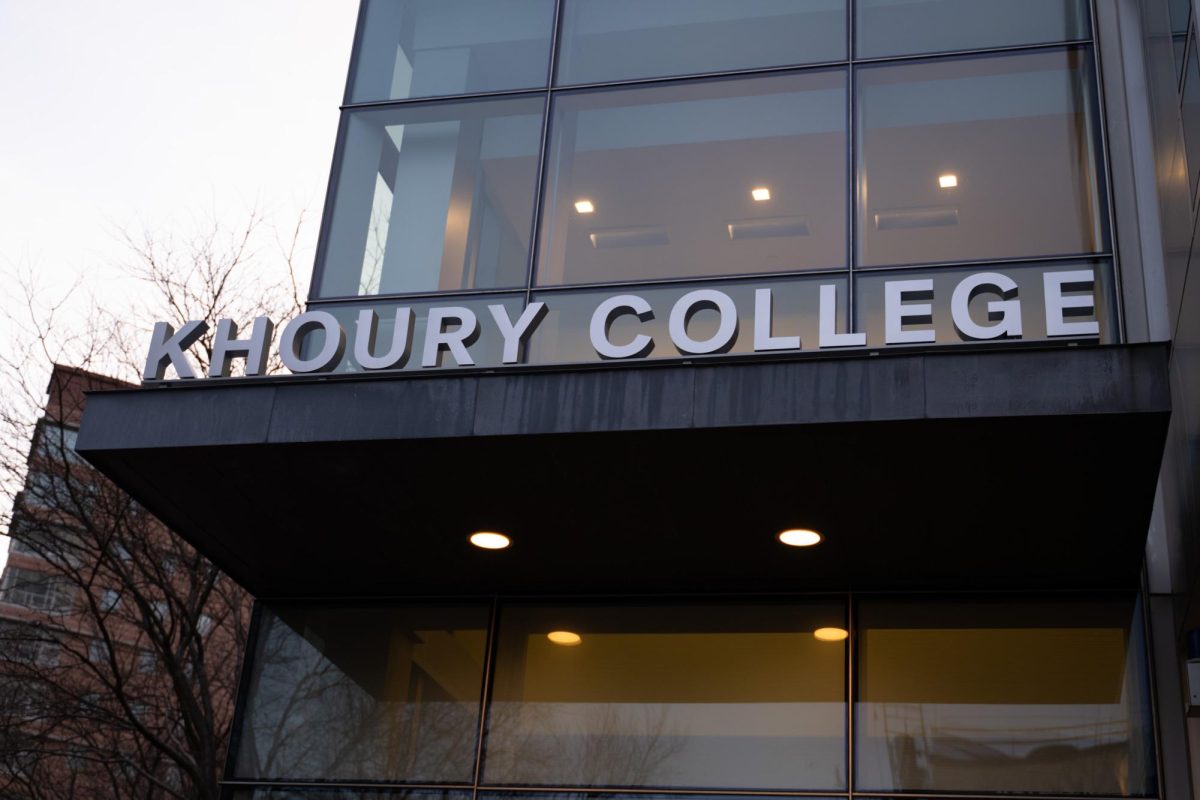By Jessica Legnos
Activists from the Boston area representing each side of the abortion debate met in Blackman Auditorium, Thursday, for a non-combative ‘public conversation’ hosted by the Ford Hall Forum.
Prompted by the 1994 shooting at a Brookline Planned Parenthood clinic that left two people dead and five injured, a panel of six local activists was created in order to facilitate civil discussions about abortion.
“The idea is to be listening for what you do not understand, instead of listening for what you do not agree with,” said Laura Chasin, director of the Public Conversations Project and moderator of the forum.
The pro-choice activists included the Rev. Anne C. Fowler, Rector at St. John’s Episcopal Church in Jamaica Plain; Melissa Kogut, Executive Director of the Massachusetts chapter of National Abortion and Reproductive Rights Action League; and Nicki Nichols Gamble, former president and CEO of the Planned Parenthood League of Massachusetts. Pro-life representatives in attendance were Frances X. Hogan, president of Women Affirming Life, Madeline McComish, former president of Massachusetts Citizens for Life, and Barbara Thorp, former director of the Pro-Life Office of the Archdiocese of Boston.
According to Chasin, the all female panel was brought together with a four meeting commitment in 1994, but have continued their efforts since then to bridge the gap between the two sides.
“It was not at all what I thought it would be,” said Lily Mercogliano, a sophomore history major who attended the dialogue with her roommate.
“I thought it was going to the be the type of thing that would make me happy when they said something that I agreed with, and angry when they said something I disagreed with,” Mercogliano said. “But it was interesting just listening to their whole process.”
Each of the six women opened the dialogue with their feelings on the day of the 1994 shooting and apprehensions about joining the forum.
“Immediately after the shooting, we were only able to communicate through the media, and it was understandably not cordial. So, we agreed to come to these meetings to cut the tension,” said McComish.
In the days following the tragedy, WCVB Channel 5 broadcasted live commentary from, both, Hogan and Gamble, an experience that Hogan called a ‘painful episode.’ The women were kept in separate areas and upon sight of one another, Hogan said she didn’t approach her pro-choice counterpart out of anxiety and a loss of words.
“I had thought of [pro-choice activists] as not human, just caricatures of human beings,” said Hogan. “We were so nervous about meeting people with whom we did not agree. This experience has really been life-altering.”
Years later, since the start of the discussions, Hogan said she looks back at the day and her change in attitude.
“I had always thought that when we got down to the really basic discussion, that we would sort of agree on some of these things, and I found out that we really didn’t agree on any of them. That was really painful to discover because I had really come to care about these people,” she said.
The women, all expressing a sense of mutual respect, agreed that they have all learned to listen to other points of view. Meetings are moderated with certain ground rules of not interrupting, avoiding attempting to persuade others, and excluding ‘hot button’ words that might offend another person.
“They basically took away from use the words that we normally use for each other. I don’t mean bad words, just ordinary words, words that I would not have known would be offensive to another person, or that the other side didn’t know were offensive to me,” said Hogan.
An example of such a hot-button term is pro-abortion, as opposed to pro-choice. Another gray area involves the use of unborn child or fetus, to which the panel agreed on the term human fetus.
Participants in the discussions use the terms pro-choice and pro-life to describe their positions with the conscious objection of Gamble.
“The use of the term pro-life I could never get beyond because I consider myself pro-life. I consider that a hot button that profoundly drove me crazy,” she said.
Gamble was also prompted to recognize differences in the pro-choice movement by a question from Mercogliano on differences within each position.
“I think, especially from the pro-choice side, that there has always been very very deep disagreements among pro-choice people about political strategy and litigation strategy. I think the dialogue helped me to not only understand the other side, but also the people on my side,” she said.
With a better understanding of each other, the activists were able to quell confrontational attitudes not only within discussions, but also in the media. According to McComish, answering media questions about opposing movements have been “much more respectful.”
The dialogue was taped for the Public Conversations Project archive and also for WGBH Forum Network.
The program will be available this week on streaming video off the Forum Network’s Website www.wgbh.org/forum, for the general public and people who were unable to attend the discussion.









